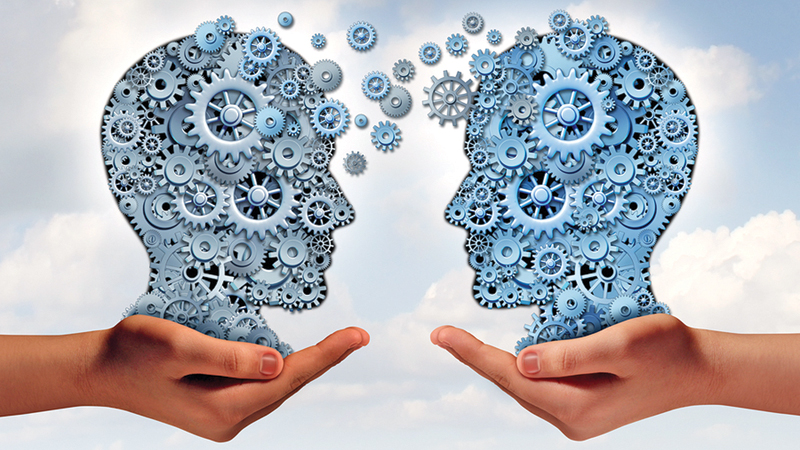 The psychology of winning was present they say when the Malaysians led by Mahathir Mohamad conceived the Petrona towers, the then tallest buildings in the world. Others would scoff at the idea. They’d say Malaysian oil companies had accumulated tremendous riches selling crude oil, so it was not difficult for them to come up with a brazenly publicist idea.
The psychology of winning was present they say when the Malaysians led by Mahathir Mohamad conceived the Petrona towers, the then tallest buildings in the world. Others would scoff at the idea. They’d say Malaysian oil companies had accumulated tremendous riches selling crude oil, so it was not difficult for them to come up with a brazenly publicist idea.
But sometimes money can be squandered. Venezuela was oil rich too. But rather than iconic buildings the country had strife and tumult, and now barely limps along, facing various headwinds of international opprobrium, fair or unfair.
Though simplistic, the idea that the collective psychological make up of a country and its people is more important to progress than all the earnest economic policies and planning, is probably underrated. People must dream, and perhaps, there is such a thing as a collective vision, an underlying yearning for an entire nation to dare to dream.
Where that spark of creative imagination is absent, as in Venezuela, no amount of geographical riches can make a country shed its economic shackles. In Sri Lanka, perhaps, we have bought into a negative narrative about our own chances. The people somehow at some point post-independence, seemed to have ceased to believe.
Variously, the historians have blamed the leaders and the circumstances. They have marvelled at the ability of the leadership to snatch defeat and malaise from the jaws of every new eventually falsedawn. But other narrators have been more fatalistic. They have blamed the wars, the natural disasters and the various global factors that intervened.
ENVIABLE
But in other countries, people kept their chins up despite calamity. In Japan, despite the devastation of two atom-bombs and the fallout from a devastating defeat from a pointless war, people didn’t blame circumstances. They were a case study in what a collectively sanguine psychology could achieve for a nation brought down to its knees.
Latterly, we in this country have been more than collectively morose. No doubt, the circumstances of the 2022 economic collapse were devastating, but then, should people lose their ability to dream, even when there is a rather enviable recovery after the 2022 meltdown, that somewhat upended predictions?
People seem to be too angry, but at what? Eventually, the anger, perhaps, can be traced back to themselves. They have bought into various notions of defeatist fatalism. They feel successive leaderships often don’t deliver but do the opposite, by becoming a drag on the system. Even so in the process, nobody individually lifts themselves up, but would rather wallow in their apparent misfortune in being foisted with bad leadership, or negative circumstances.
A positive national-psyche is not about nationalism, patriotism or bigotry disguised as jingoism, the latter constituting a bad look either way. It is about collective self-belief. It seems it is this intangible quantity of self-confidence that has eluded us as a nation.
It can be counter-argued that there is no self-belief for those in want, or facing constant deprivation. But even when there is enough of everything to go around, it seems the cynics have had a field day. In the immediate post-independence era, it seemed some amount of inertia began to be the dominant feature of the then mindsets. There was no vision to consolidate on the freedom that came with independence.
The reason? If we daresay that it was a matter of a pessimistic and unimaginative national-psyche that was at fault, we may be greeted with a howl of protests. Those who don’t like the theory that our attitude destroyed our post-independence chances, would say the colonial administration left us with poverty and a raft of problems, not the least of which was a people battered into submission, and, therefore, left diffident, and un-daring.
But the battered, however, don’t universally wallow in their own apparent misfortunes. In equally battered post-colonial Singapore and Malaysia, they dared to dream big and think of the possibilities. The people of these countries had the leadership, which they didn’t try to undercut and demolish.
Self-belief or the lack of it as far as our country is concerned, loosely put, is partially about ‘others-belief’ too. People in this country sowed division because they didn’t have confidence in the collective effort. They felt that somewhere in the country, there were undeserving people that undermined the national effort. Society soon became compartmentalised, with people being at cross-purposes in the task of achieving even a modicum of progress.
In all of this, perhaps, the one unlearnt lesson was about how powerful a collective national-psyche could be. If we had one that was about self-belief and confidence, all the economic planners and policy wizards would have been redundant. But a positive national-psyche is not built artificially.
It is not built by churning up the volume on patriotic songs and paeans, and we have enough of those. The key word is infectious.
We needed an infectious national attitude of positivism. But, people didn’t tell each other that they can overcome together, or that Sri Lanka has what it takes.
On the contrary, they bought into all of the negative perceptions. They convinced themselves that they have to go abroad to thrive. They convinced themselves that there were always others, other races, other types of politically inclined, that were a drag on the national effort.
Undermining
At the very basic level — the so-called nuclear-family unit — people start by undermining the notion of success based on the prospects of this country. Their idea is that they have to thrive despite, not because of what the country has to offer, or that they have to abandon the country altogether to succeed.
It’s in other words, a terribly warped national-psyche. In that event, how do we build a robustly reliable national-psyche from here on?
Perhaps, people need to feel that there is a Sri Lankan dream. They need to palpably feel that there is a transformation towards abundance from a mentality of scarcity. A Sri Lankan dream cannot be bandied about without some results. If people see that their compatriots prosper and there is a fair chance for them too, the notion of a Sri Lankan dream would be credible.
Citizens cannot feel stifled all the way and be overwhelmed by taxes, surcharges and the lot. At least for the daring, there must be less regulation, and more bandwidth when it comes to thinking about upward mobility.
However, attitudinal changes are in the final analysis, a matter for the people. It is not something politicians, leaders or sundry do-gooders can inculcate in the ordinary folk, and the voters.
But then again there were countries such as South Korea that were turned around almost single-handedly by determined strongmen who set an example with their actions.
Again, the word is self-belief. These leaders had the self-belief that the people will deliver, not the politicians. They knew all they had to do was to create the conditions for the people to deliver for themselves.
The people should believe that it is they that are at the cusp of greatness, not politicians or some other authority figures. They should be excited about the prospects for making something of a quantum leap in their lives. If they don’t have that sense of curiosity, and that sense they can make things happen, politicians or leaders cannot prod them along.
But it’s this very ingredient that’s seemingly lacking in Sri Lanka. Everybody is a critic, but how many would stand up and deliver, for the community, for their workplace, if not for the country?
Maybe they have been made cynical by an excess of negativity. They have been fed a diet of bad news, about how we have become a corrupt nation, about how we have become bankrupt, and how we can only provide for the country if we do other people’s odd jobs abroad.
They have begun to think there will never be underground trains or modern forms of mass transit here, back home. They have even been told that one cannot expect cleanliness, honesty or honest-enthusiasm in their homeland.
This amount of serial negativity has probably made our people the hardest hard-boiled cynics this side of the Suez. It is time someone, or something woke them up to the fact that there is a tangible, reachable, alternative reality out there.








